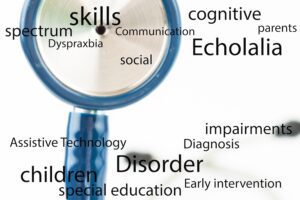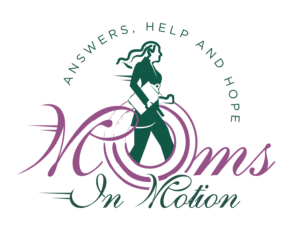If you are interested in learning more about early interventionSupports and services to infants and toddlers from birth through age two who are not developing as expected or who have a medical condition that can delay normal development. Often focused on increasing the child’s participation in family and community activities that are important to the family, and on helping parents and other caregivers know how to find ways to help the child learn during everyday activities., either on a local or federal level, you have come to the right place. Early intervention is a vitally important service that is offered everywhere in the United States and it is crucial to know if you have a child with developmental disabilitiesThe Americans with Disabilities Act (ADA) defines a person with a disability as a person who has a physical or mental impairment that substantially limits one or more major life activity. This includes people who have a record of such an impairment, even if they do not currently have a disability. It also includes people who do not have a disability but are regarded as having a disability. The ADA also makes it unlawful to discriminate against a person based on that person’s association with a person with a disability. More or delays.
Let’s start with what early intervention is, and why it is so important.
What is Early Intervention?
First things first, what is early intervention?
Early intervention assists young children who have either developmental disabilities or delays from their birth to third birthday.
There are many services offered by early intervention, including:
- Occupational therapyThe use of assessment and intervention that helps people of all ages to recover from injury, disability or illness and participate in activities of daily living. More (OT), which assists with self-help, eating, getting dressed, feeling secure/happy, playing, etc. This type of therapy helps your child with fine motor skills and social/emotional skills.
- Physical therapyAssessment and interventions for the preservation, enhancement, or restoration of movement and physical function impaired or threatened by disease, injury, or disability that utilizes therapeutic exercise, physical modalities (such as massage and electrotherapy), assistive devices, and patient education and training. More (PT), which assists with crawling, walking, reaching, rolling, etc. This type of therapy helps your child with gross motor skillsThe coordination of the muscles and the neurological system; to do things that involve using the large muscles in the torso, arms and legs to complete whole-body movements..
- Speech therapy (ST), which assists with understanding, listening, talking, etc. This type of therapy covers your child’s communication skills.
With early intervention, young children and babies can either get services at home or in their community. There are different types of specialists that can work with your child depending on the delayed skills in question. Having these services available early can have a big impact on your child’s social life and schooling.
Early intervention is available to every single US state and territory, and it is regulated by Part C of the Individuals with Disabilities Education Act (also known as IDEA).
How to Find Out if Your Child is Eligible for Early Intervention
So, how can you find out if your child is eligible for early intervention?
Eligibility is completely based on an evaluation done to access your child’s abilities and skills. If you, someone you know, or your child’s pediatrician are concerned about their development, connect with your state (or territory’s) early intervention program to find out if they can take advantage of their services.
For children under the age of three, call your local early intervention program and tell them that you have certain concerns about your child’s development and would like to have them evaluated to find out if they are eligible for early intervention services.
If your child is 3 or older, call a local public elementary school (even if they do not attend that particular school), and let them know you have concerns about their development and would like to have them evaluated through the school system for potential preschool special educationSpecifically designed instruction, at no cost to the parents, to meet the unique needs of a child with a disability. services. If you reach someone who isn’t familiar with this process, you can request to speak to either the school or district’s special education director.
Wondering how to get started? Let’s take a look at some resources that can help you.

Early Intervention Resources
For those of you residing in Virginia, here are some helpful resources:
- Parent-To-Parent of Virginia
- Virginia Department of Health: Care Connection for Children
- Infant & Toddler Connection of Virginia
- Virginia Infant & Toddler Specialist Network
For federal resources, consider checking out the US Department of Education IDEA state contacts page for specific contact information in your state. Also consider looking at the National Association for the Education of Young Children (NAEYC), and the Center for Parent Information and Resources.
How Moms In Motion Can Help with Early Intervention
How can Moms In Motion help you with information regarding early intervention?
We have a multitude of resources and a searchable resource list to help you find additional information regarding Virginia’s Medicaid waivers. You can also contact us with further questions! Reach out to us today!

